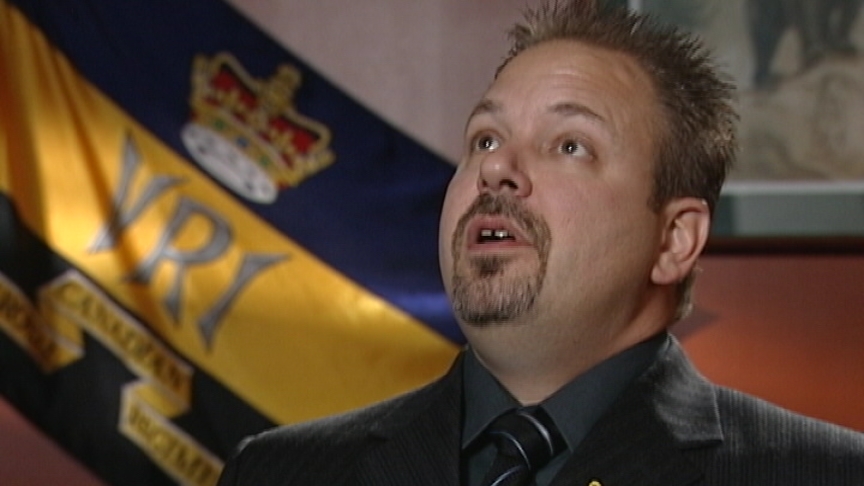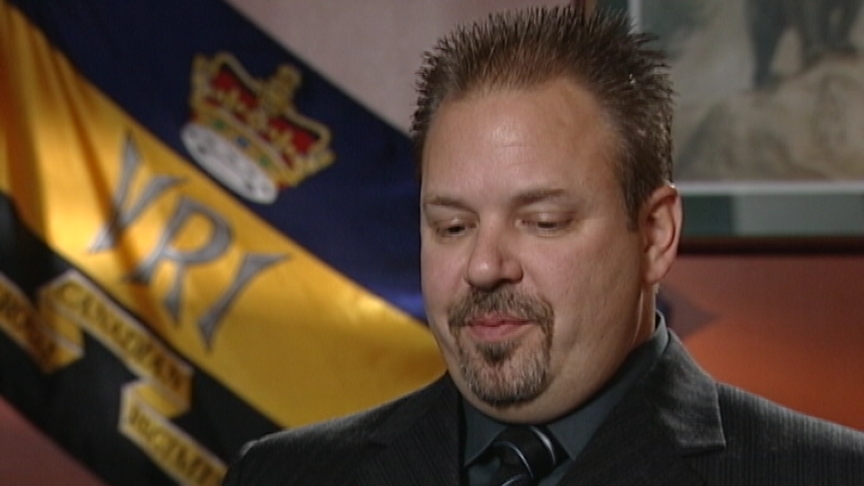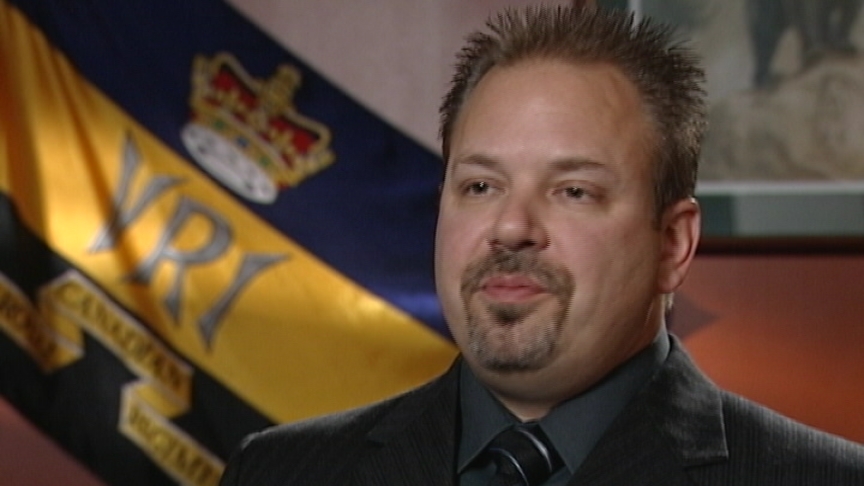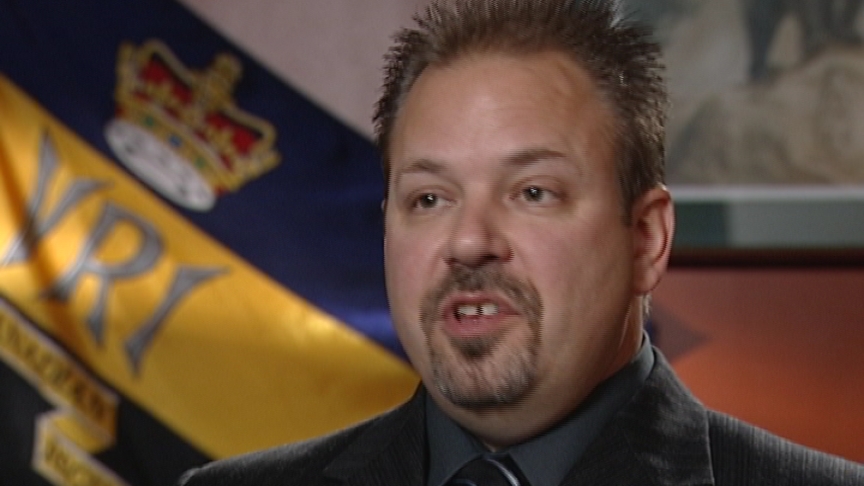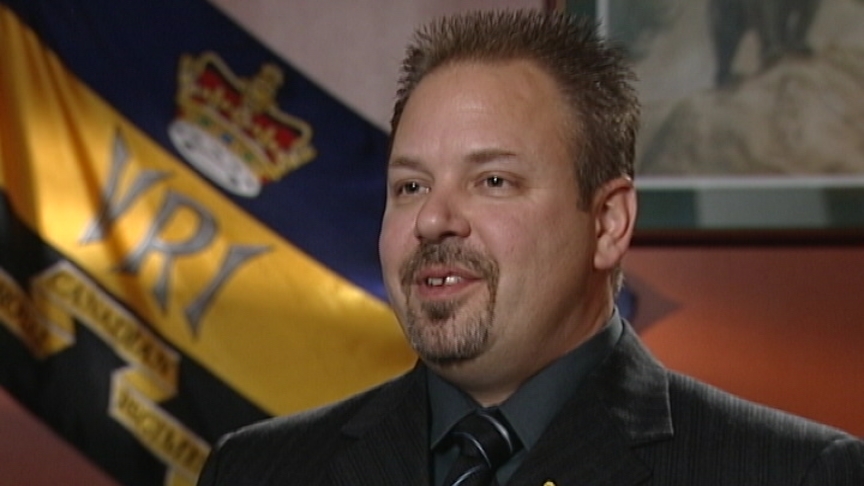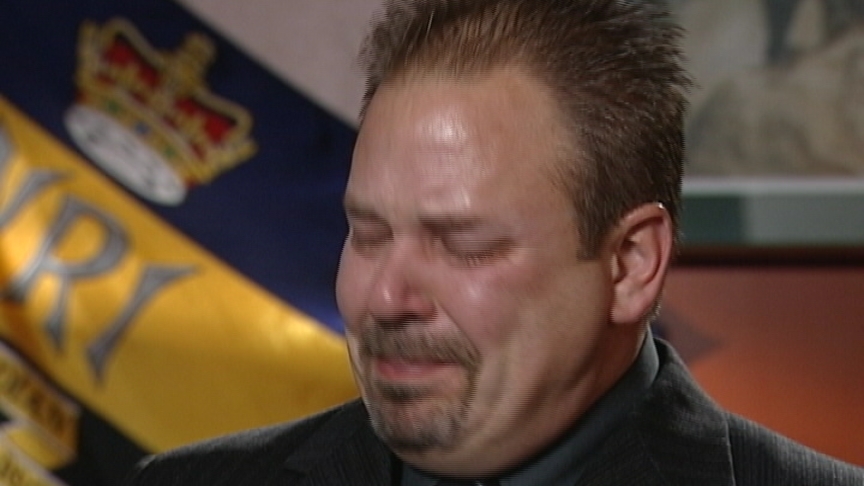Yugoslavia itself when we got there, I mean we came from a very,
very, we were living in Germany basically with 3RCR.
We were hand picked for November Company to go and accompany the
Vandoos so you’re looking at a hand picked group of elite
soldiers basically that were taken from within 3RCR
to go and do this job. They picked only the best and the
brightest basically. And when you get there, it’s hard to
describe. It’s like going back 50 years. We went from Germany,
you know very, very modern and fast, but you arrive in
Yugoslavia to a country that’s basically been encompassed
at that point for years by dictatorship and what have you
and, of course, you don’t have the modern conveniences.
You got stand up toilets versus, you know, what we have here,
in sit down toilets. Running water, very, very scarce,
you know everything had to be done by hand for the most part
until you get into the big modern cities, and then,
of course, it was very much like Germany but outlying areas,
very ,very it was backwards by almost 40 years I think.
I can still recall many, many times we’d go on patrol.
We would drive into a town or a village and we would basically
be looking for anybody and there wasn’t a soul. So you’re
taking a town or a village that maybe had 300, 500, 700 people
living in it and the houses are very, very close together,
and all you see is a dog perhaps a chicken,
maybe a pig running around.
We did enter a lot of these homes and take a look around
to see what’s there, what’s going on and of course,
that’s where you start encountering the bodies.
That’s where the sights and smells again of war come into
play. But the houses were ransacked and you gotta remember
when these people are being pushed out the people
that were following along would actually ransack their house
and the idea was so they could never come back. So everything
that would been in drawers or bureaus or what have you was all
dumped over the floor, fixtures were torn off, photos strewn.
If I had a dime for every photo I seen over there that was laying
on the floor and you can imagine taking your pictures and dumping
them on the floor, never ever seeing them again.
A lot of black and white pictures of children, of births
and celebrations and stuff that these people will never have
again and it was very, very disheartening to see this of course
but you knew that nobody would ever come back to these homes
again and that’s what’s kind of tough.
So these villages, it was very, very sad to see, you know,
homes probably were owned for many, many years, you know,
through families and families and generations and they’ll never
come back, you know. I remember going into one actually just
off topic, and the food was still sitting, now this house hadn’t
been, hadn’t had anybody an occupant in probably seven-eight
months and it looked like they were sitting down for dinner.
This is one of the lucky ones that didn’t get ransacked but all
the food was sitting on the table where it would sit.
There was food sitting on the stove, all the pots and
everything, the table was set, looked like they were about
ready to sit down for dinner and then they were basically told,
grab your stuff and get the hell out.




